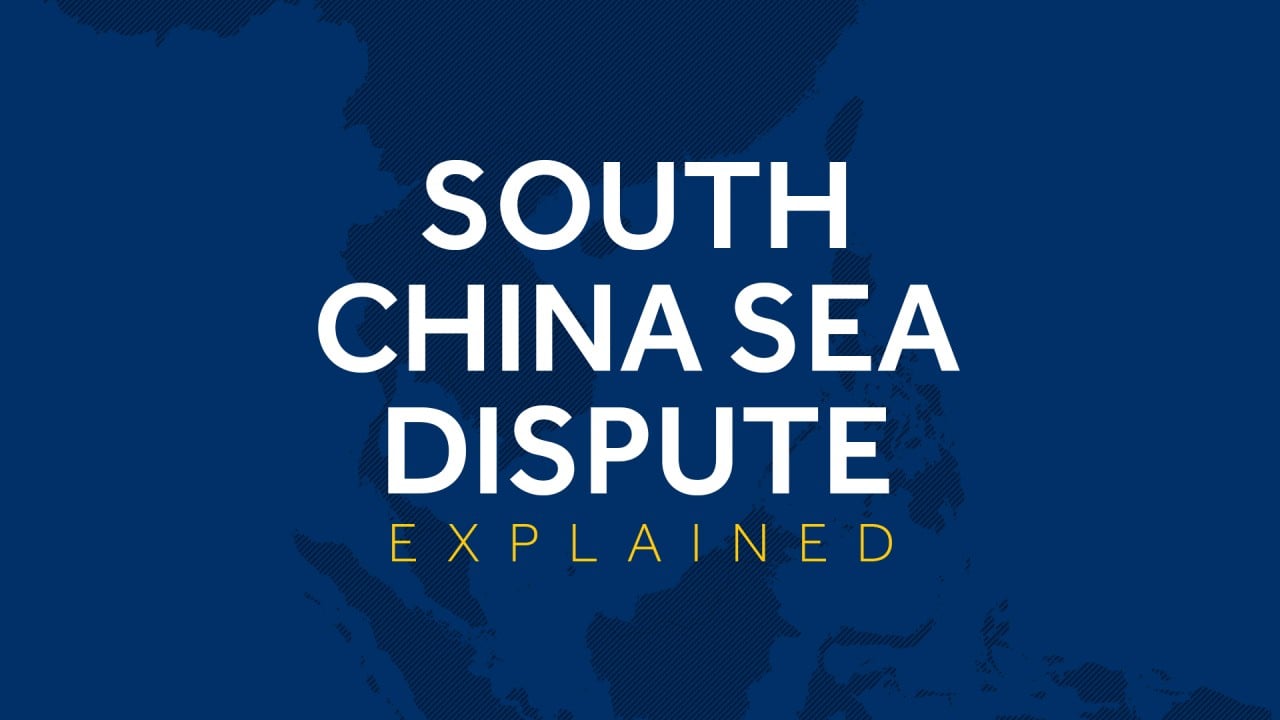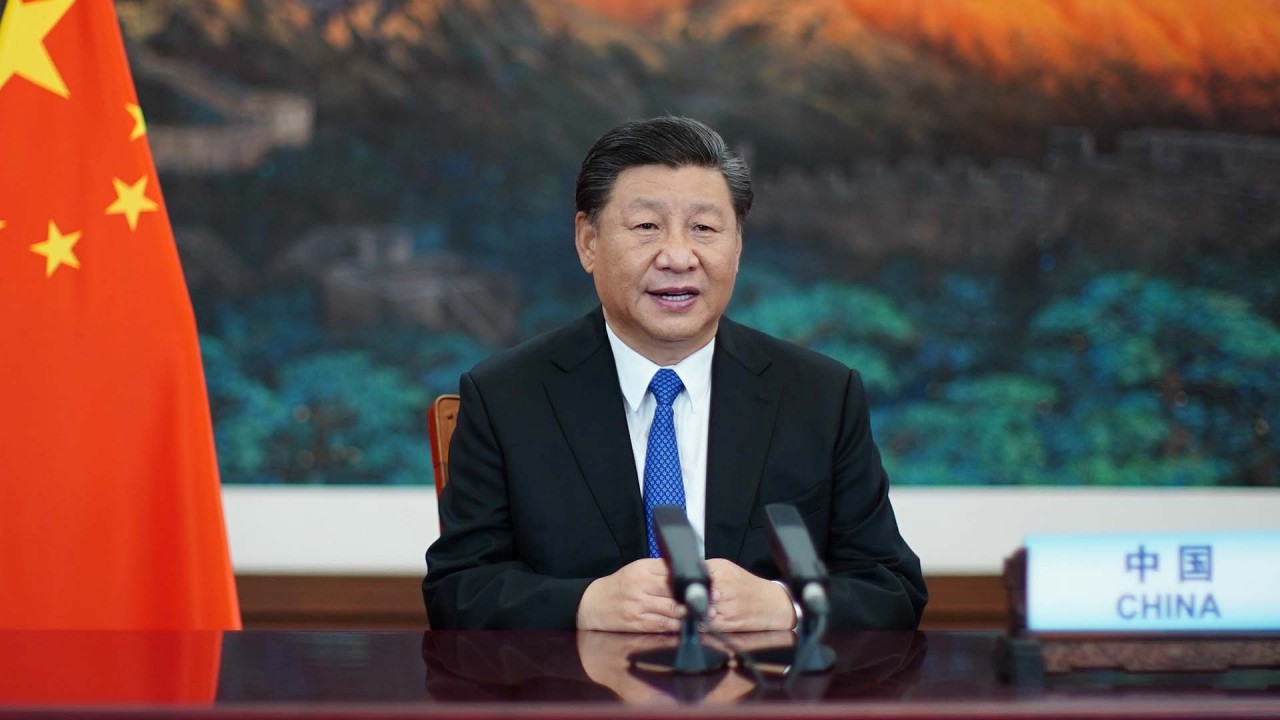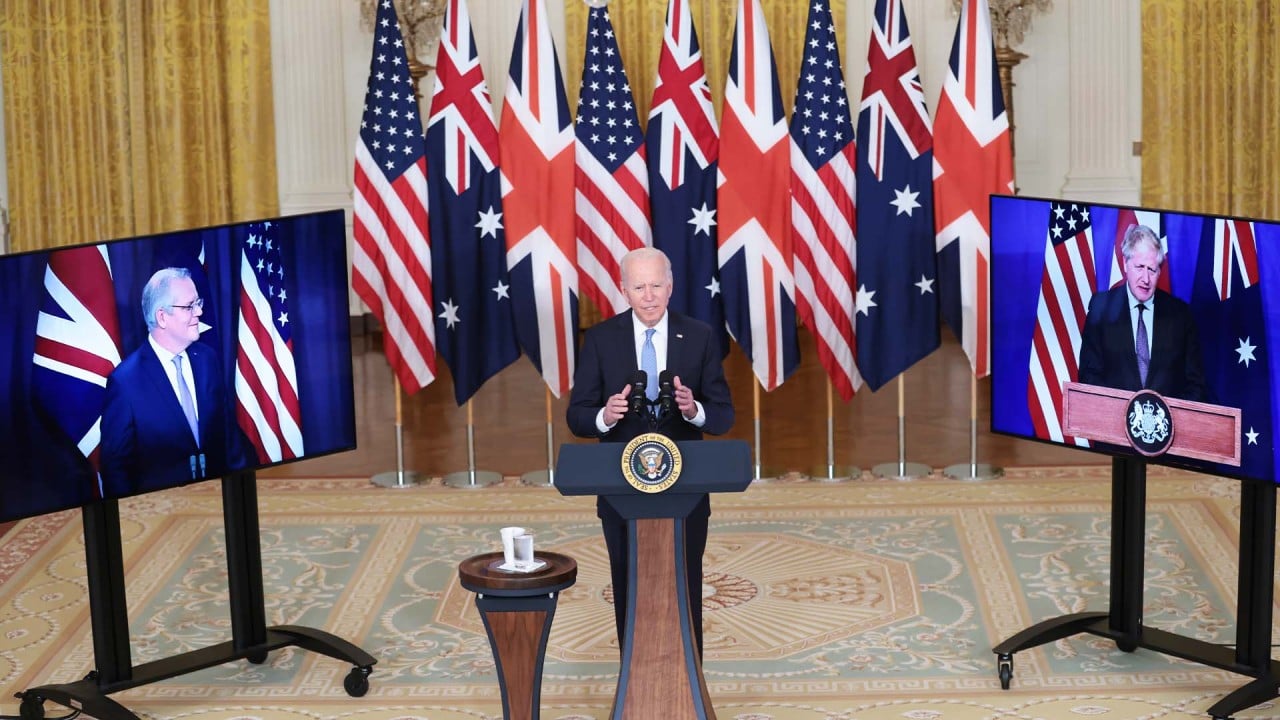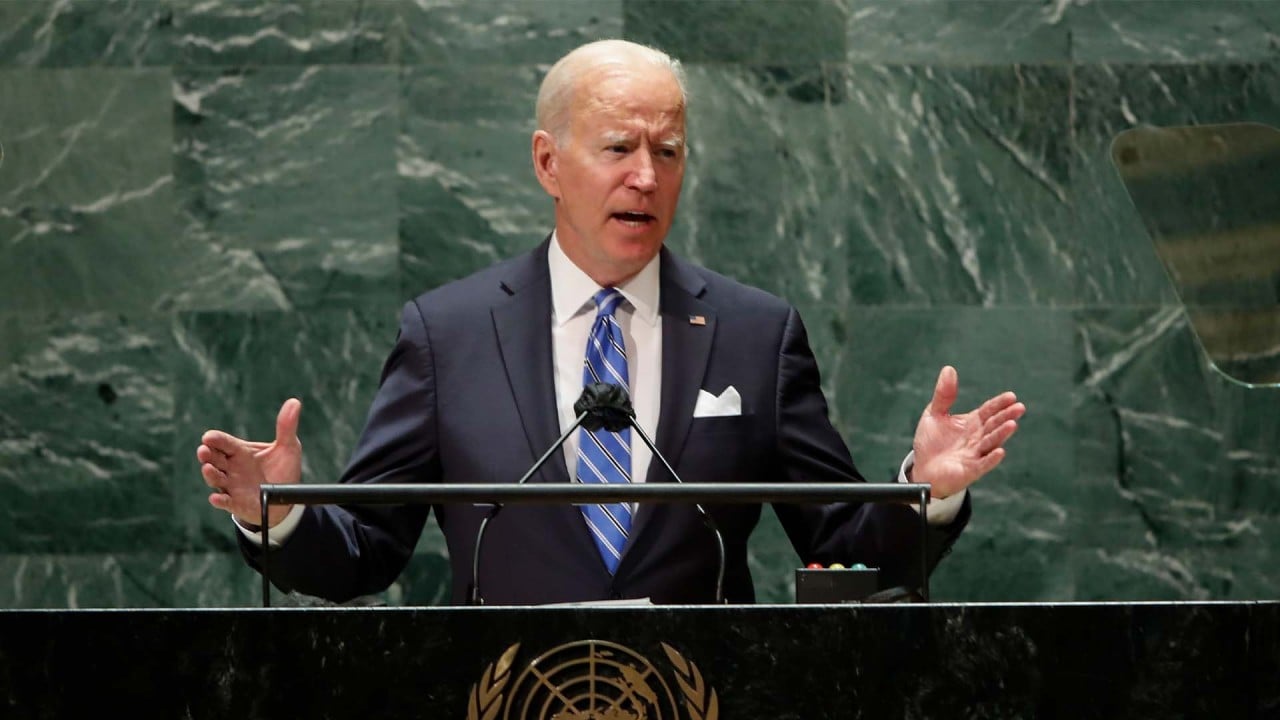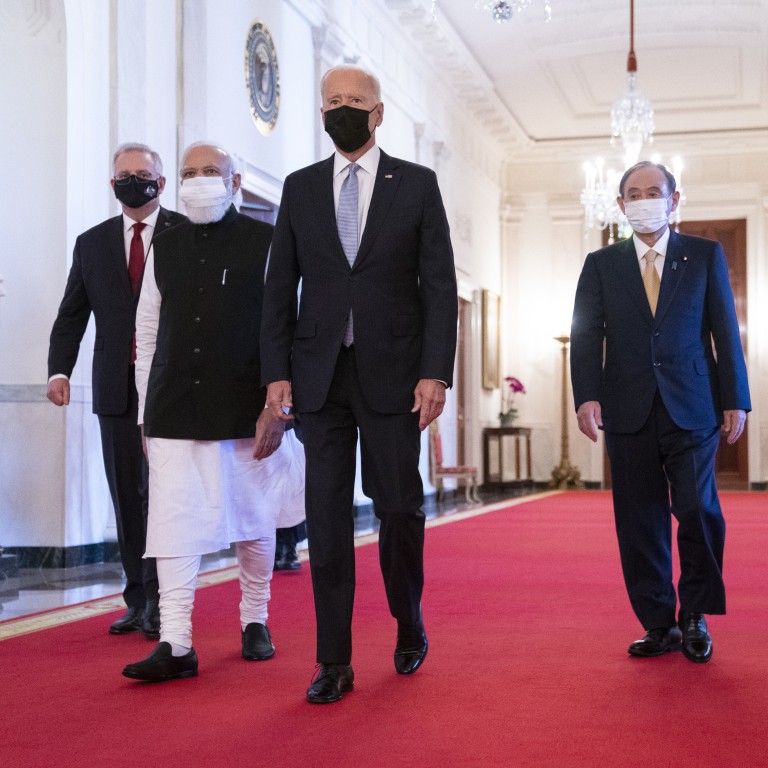
After Aukus, the Quad’s quiet resolve gives China much to think about
- The latest Quad summit can be seen as a preliminary effort by the US and its partners to rewire the discourse on regional security and policy priorities for the Indo-Pacific
- However, following the strong signalling of Aukus, the Quad has steadfastly avoided finger-wagging
That uncertainty and tentativeness has been set aside. Even while reiterating familiar themes and principles, the latest Quad statement exudes a quiet Biden-led resolve and collective intent that may provide some cues as to how the prevailing flux in the global strategic and security environment will be shaped.
The vision outlined is lofty: “On this historic occasion we recommit to our partnership, and to a region that is a bedrock of our shared security and prosperity – a free and open Indo-Pacific, which is also inclusive and resilient.”
Beijing has its own interpretation of historical maritime claims. Consequently, the waters of the Indo-Pacific have been muddied.
The virtual Quad summit in March also alluded to a “free and open Indo-Pacific” but the latest statement is more definitive and resolute:
“Together, we recommit to promoting the free, open, rules-based order, rooted in international law and undaunted by coercion, to bolster security and prosperity in the Indo-Pacific and beyond. We stand for the rule of law, freedom of navigation and overflight, peaceful resolution of disputes, democratic values, and territorial integrity of states.”
In summary, the Quad summit could be seen as a preliminary effort by the US and its partners to rewire the discourse on regional security and policy priority for the Indo-Pacific.
Beijing reacted angrily, rattled at the long-term naval implications of the move. Once the Royal Australian Navy acquires the nuclear subs, the underwater domain of the Indo-Pacific will be even more constrained for China’s navy.
The Chinese navy faces unfavourable geography along its east coast (its only access to the Pacific Ocean) and is further inhibited by the prevailing East Asian geopolitical grid. Aukus will add to this operational challenge.
An intractable contradiction that could act as insurance against any kind of impulsive policy lurch in the Indo-Pacific is embedded in the geoeconomics vs geostrategic compulsions for the principal interlocutors.
Pertinently, the five Quad and Aukus nations were among China’s top 13 trading partners last year. Ensuring the stability of this interdependency is vital for their national well-being and the political fortunes of the current leadership, including President Xi Jinping.
The Quad has steadfastly avoided finger-wagging and the orientation is persuasive. One hopes that Beijing can arrive at an equitable modus vivendi with its Indo-Pacific interlocutors in the run-up to the 75th anniversary of the People’s Republic of China.
Commodore C. Uday Bhaskar is director of the Society for Policy Studies (SPS), an independent think tank based in New Delhi


